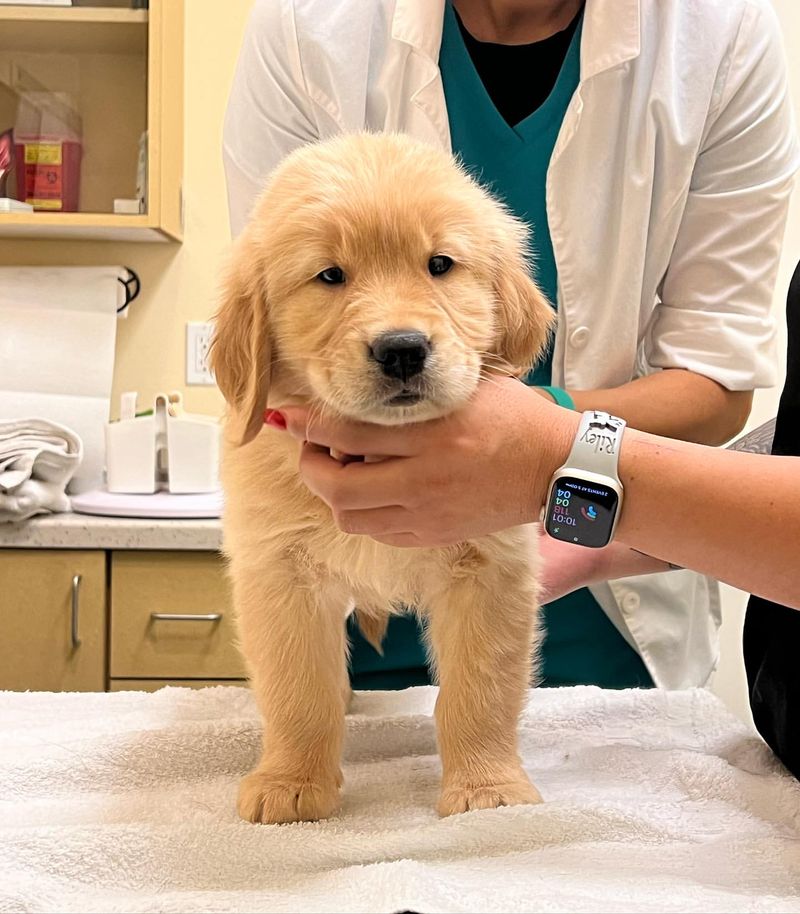📖 Table of Content:
Golden retrievers are cherished for their affectionate temperament and remarkable intelligence, making them a top choice for families and individuals alike. Their friendly disposition allows them to get along well with children, other pets, and even strangers. However, their social nature means they thrive on attention and can become anxious if left alone for long periods.
Before welcoming a golden retriever into your home, it’s crucial to consider their exercise needs, grooming requirements, and potential health concerns. These dogs are energetic and require regular physical activity to stay healthy and happy. Additionally, their beautiful coats demand consistent grooming to prevent matting and shedding issues.
Owning a golden retriever is a rewarding experience, but it requires commitment and understanding of the breed’s specific needs. With proper care and attention, these loyal companions will provide endless joy and companionship. This guide highlights the essentials to ensure a fulfilling relationship with your new pet.
1. Friendly and Social
Renowned for their friendly disposition, golden retrievers thrive on human interaction and cherish being around people, which makes them exceptional family pets.
Their social nature means they are great with children and often get along well with other pets. However, this also means they require a lot of attention and companionship. If left alone for too long, they can become anxious or depressed.
It’s important to ensure they have plenty of social interaction and stimulation. Regular playdates with other dogs or visits to the dog park can help fulfill their social needs.
2. Exercise Needs
Active and full of energy, golden retrievers need daily exercise to maintain their health and happiness.
This breed enjoys a variety of physical activities, from long walks to playing fetch. Without proper exercise, they can become bored and develop destructive behaviors.
For prospective owners, it’s essential to be prepared for regular activity. Whether it’s hiking or swimming, engaging your golden retriever in physical activities will not only satisfy their exercise needs but also strengthen your bond.
3. Grooming Requirements
With their beautiful, dense coat, golden retrievers benefit from regular grooming. Brushing them a few times a week keeps matting at bay and minimizes shedding in the home.
During seasonal changes, they tend to shed more, requiring extra care. Regular grooming isn’t just about aesthetics; it also helps maintain their skin health and keeps them comfortable.
Regular baths, nail trimming, and ear cleaning should be part of their grooming routine. By maintaining their coat, you ensure your golden retriever stays looking its best and feels great.
4. Health Considerations
Though generally healthy, golden retrievers can be prone to certain genetic conditions. Common concerns include hip dysplasia, heart issues, and specific types of cancer.
Regular veterinary check-ups are crucial for early detection and prevention. A balanced diet and proper exercise also play a significant role in maintaining their health.
Prospective owners should be aware of these potential health concerns and ensure they have access to quality veterinary care. Being informed and proactive can contribute significantly to the longevity and well-being of your Golden Retriever.
5. Training and Intelligence
Known for their intelligence, golden retrievers excel in obedience training. They are eager to please, which makes them highly trainable. Consistency and positive reinforcement are key to effective training.
These dogs thrive in environments where they are mentally stimulated. Engaging them in problem-solving games or teaching them new tricks can be very rewarding.
Training isn’t just about obedience; it’s also about building a strong bond with your dog. Investing time in training will ensure a well-behaved and happy golden retriever.
6. Space Requirements
Golden retrievers need ample space to move around and play. While they can adapt to various living environments, a home with a yard is ideal for them.
This breed enjoys being outside and having the freedom to explore their surroundings. A fenced yard allows them to play safely.
If you live in an apartment, regular outdoor activities are necessary to meet their space needs. Providing them with toys and interactive activities indoors can also help keep them entertained and happy.
7. Lifespan and Aging
Living an average of 10 to 12 years, golden retrievers experience changing needs as they age, demanding greater attention to their health and comfort.
Older dogs may need special diets and less strenuous exercise routines. Regular vet visits become even more important to monitor their health.
Understanding their aging process and being prepared for it can help ensure a smooth transition into their senior years. Providing a comfortable living environment and maintaining a healthy lifestyle can prolong their quality of life.
8. Affectionate Nature
Known for their affectionate nature, golden retrievers build strong bonds with their families and flourish with love and attention.
This breed is happiest when they are part of family activities and enjoy cuddling with their loved ones.
Their affectionate nature makes them excellent therapy dogs, bringing comfort to people in need. If you’re looking for a loving companion who will always be by your side, a Golden Retriever might be the perfect fit for you.
9. Nutritional Needs
Proper nutrition is essential for a golden retriever’s health and well-being. They require a balanced diet rich in proteins, fats, and carbohydrates.
Feeding them high-quality dog food and avoiding excessive treats can help maintain their ideal weight and energy levels.
Consulting with a veterinarian about their specific dietary needs is advisable. A well-fed golden retriever tends to lead a healthier and more active life. Paying attention to their nutritional requirements will ensure they stay fit and full of life.









